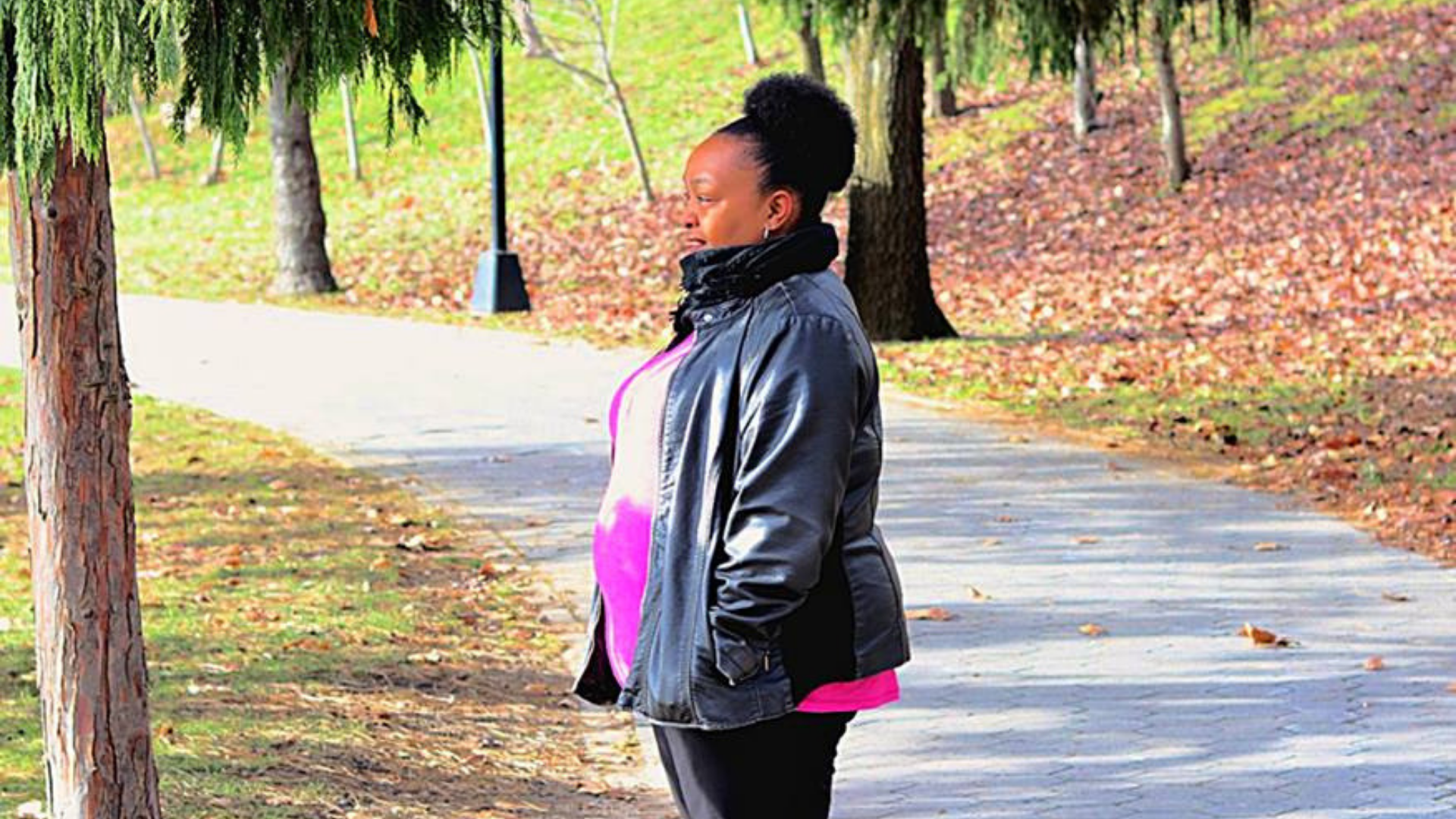A story about the duality of being the oppressed and the oppressor

?I think what we forget is that everybody loses when we keep unnecessary privilege. The cost to society overall is much greater.? ? O. T. Fagbenle
I was flipping through my Instagram stories when I came across the daily postings of a writer I follow who goes by the name of Your Fat Friend.
She is an anonymous blogger, and social media public figure who writes candidly about her lived experience as a fat person.
She also writes about other personal oppression?s she has encountered living in a world that is continuously spoon-feeding her conformity.
Nonetheless, on this day in her Instagram stories for the first time, I read the words ?SMALL FAT,? ?MEDIUM FAT,? ?SUPERFAT,? and ?INFINIFAT.?
The words ignited my curiosity. What is this? I thought to myself feeling incredibly perplexed by what I was consuming.
I?m sure this was not the first time she had posted these words. However, it was my first glimpse at them, and that glimpse would change me forever.
It would ultimately be the thing that would expand my thinking in the area of weight and size.
The words I was reading spurred reminiscent thoughts of my confusion in the area of colorism. A phenomenon that is prevalent in the black community.
You know, the whole ? ?Can you pass the paper bag test? ? light-skinned vs. dark-skinned intracultural bigotry that lingers on from chattel slavery?
As I continued to press the right arrow on my phone screen, more and more images popped up in her story.
On them, more and more explanations exposed themselves to me, revealing information my eyes had never seen.
I could feel the weight of ignorance heavy on my shoulders as words could not creep past the lump in my throat that was thick with duplicitous betrayal.
Here it is I?m a proud body positivist, yet, to my dismay, I realized I?m also still an oppressor.
In my pursuit of mindless Instagram story wandering, I stumbled upon my privilege, and running into this unfamiliar friend made me take several seats.
Until recently, privilege is something I never thought of myself as having. However, over the past few years, I have learned that in many way I?m privileged .
As much as I consider myself a non-status-quo person, I?ve realized that in many ways, I adhere to some of the popular status-quos.
Over time, I have realized that in some areas of my life, I am part of the dominant worldview.
The worldview that knowingly and unknowingly oppresses other groups.
I believe that my lived experience as a woman with black skin has hindered my ability to acknowledge some of the privileges I hold in a society wrought with bias and bigotry.
The Self-Centeredness of the Fat Experience
I have been fat since early childhood. I?ve spoken about what I like to call my ?Fat Story? several times in various blogs, social media posts, and podcasts.
I believe every fat person has a fat story, and until recently, I was trapped in my own.
Completely and totally self-involved when it came to my struggle with everything that is diet culture, thin privilege, fat, and so on.
All of my life, I have never given thought to the differences that exist between myself (a medium fat) and people who would be considered superfat or infinifat.
However, I did always notice the differences that exist between myself and a person who would be considered a small fat.
Let me break down the sizes of the fat spectrum as they are explained by Your Fat Friend in her Instagram stories.
Her explanation of the fat spectrum was curated from the Fat Lip podcast and it is written verbatim below. So, here we go:
Small Fat ? Wears a size 1x-2x or an 18 and lower. Small fats can find clothes that fit at the mainstream brands and can shop in most stores. Apparently, they just have to buy larger sizes.
Medium Fat ? Wears a size 2x -3x or a 20 to a 24. Medium fats can shop at some mainstream stores, but they mostly shop at dedicated plus-size brands or online.
Superfat ? Wears a size 4x-5x or a 26 to a 32. Superfats wear the largest sizes that dedicated plus-size brands carry. Most of the time, they can only shop online.
Infinifat ? Wears a size 6x and higher or a 34 and higher. Infinifats have an extremely difficult time finding items that fit. Even when they shop online. People who fall into this category frequently require custom fitting.
As a medium fat, I often looked at small fat people and wondered what the hell they were complaining about?
I didn?t and still don?t consider them fat. When I was heavy into diet culture, I would have been more than happy to get down to their size.
If I could have gotten to a size 14 from the 22, I currently wear I would have been happy as a pig in squalor (Old southern saying from my mom).
Make no mistake there is a part of me that still would love to be a size 14.
As I?ve said before, this fat shit is complicated as hell; even as a body positivist the shine of thin privilege is still enticing to me.
Sitting in the space where I was consistently comparing my fat struggle to people who are small fat blinded me to the struggle of people with larger bodies.
But like many others who are part of the fat spectrum, I only had one focal point ? my problems, my struggles, my fat, my experiences.
I had fat tunnel vision, and it did not allow me to see anything or anyone else.
The Duality of Being the Oppressed and the Oppressor
Do you know how many times I have uttered the words, ?At least I?m not that fat??
Understand, I have not said this phrase out loud in a few years, but in the past, I?ve said it several times.
And even though I no longer speak these words with my mouth I still passively think them in my head.
Even though I?ll yell to the rooftops that I?m ?Body Positive,? I still have fat biases that ever so gently rest in the recesses of my socially conditioned psyche.
The psyche I am continuously trying to shed and admitting that I am the oppressor is one of the first steps.
I firmly believe that it is the oppressor?s job to educate themselves. It is not the responsibility of the oppressed to do that for you or me.
The reason I can attest to this is that I am part of several oppressed groups. I am a woman, I am black, and I am fat.
All of which qualify as oppressed groups. However, I must not ignore the fact that there are levels to this shit.
Let me explain.
I identify as a woman (cisgender), which is a privilege to do because it is a dominant worldview.
Adhering to the traditional social norms of gender protects me from judgment and persecution in regards to my gender identity.
So, while women are an oppressed group because of their gender from a patriarchal viewpoint, gender non-conforming people are often oppressed by cisgender women.
In the past, by not acknowledging my privilege in this area, I have unknowingly been an oppressor towards this community of human beings.
Like I mentioned earlier, colorism is heavy in the black community. Take a look at Spike Lee?s movie School Daze, and you?ll get a glimpse of the phenomenon that is colorism.
The light-skinned vs. dark-skinned divide is deeply embedded in much of the African American community.
There are explicit and implicit color biases rolling off the tongues, and rumbling through the minds of people who are oppressed by a nation, where white is the standard to which everyone must measure themselves.
In the past, I have knowingly and unknowingly oppressed people who have skin darker than mine. Mostly during my early childhood. A behavior I do not engage in anymore.
The reason I was able to change my behavior in these two above areas is that I took the time to educate myself about the issues.
I took the time to be reflective of my beliefs, mindset, biases, thoughts, and behaviors.
I took the time to think about how all of these things came to be, and the role I played in perpetuating these areas of oppression.
This is why it is vital to examine your privilege. When you know better, do better.
Obliterating the duality of being the oppressed and the oppressor is quite the feat to navigate.
Social constructs and the human condition are complex subjects each on their own.
Fusing them for topics like sexism, heterosexism, racism, colorism, weightism, sizeism, and figurism makes for even more complexities in the subject matter.
I was taken aback when I examined the meanings of small fat, medium fat, superfat, and infinifat.
My privilege bubble began to suffocate me as I slowly read the words that explained I?m still an oppressor.
I sit on my medium fat throne, judging my fatness based on its proximity to thinness in the sizeism hierarchy, without regard to those individuals who have larger bodies than mine.
It was easy for me to say things like, ?At least I don?t weight 300 lbs.? Yet, I?m always put off when someone else says, ?At least I don?t weight 200 lbs.? I will no longer engage in this type of thinking or self-talk.
The duality of being the oppressed and the oppressor has many blind spots. Nonetheless, my dear people who identify as superfat and infinifat ? I?m here to say that I see you and I hear you.
Going forward, I will be sure to add this topic to my list of things to discuss with my clients and other groups that I work alongside in the community and my profession.
In no way do I purport to be an expert on this topic. And by no means would I ever try to be.
However, when I work with people, I always want to do my best to maintain a trauma-informed and humans rights perspective when it comes to issues that are going on in their lives.
Knowing more and understanding more allows me to decrease my blind spots in many knowledge areas.
Decreasing my blind spots allows me to show up for the people I serve in ways I would not be able to if I lacked knowledge in these areas.
Knowing more allows me to become a better human being, which is always on my to-do list.
Understanding more also allows me to meet my clients, friends, and family where they are ? an essential factor in social work.


